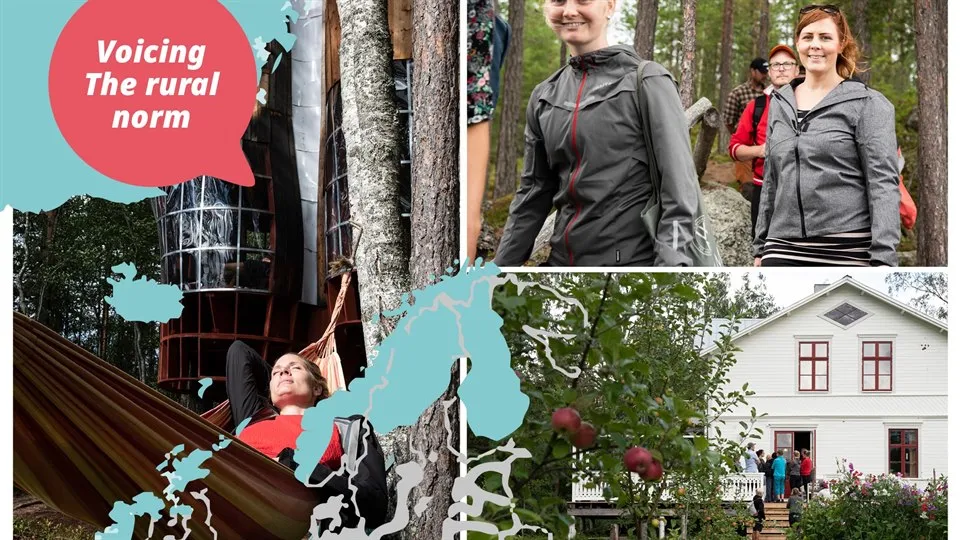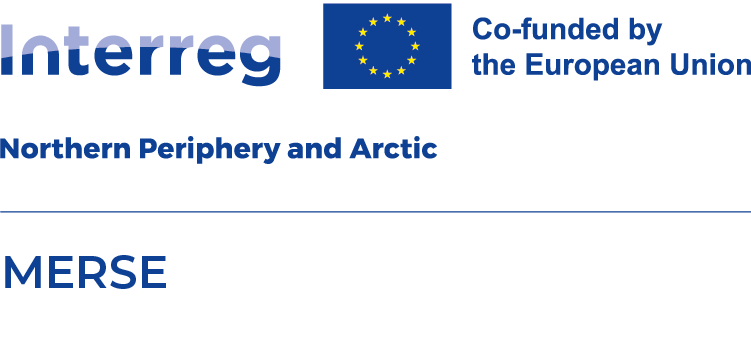Interregional project on rural Social Entrepreneurship
KBT Vocational college are participating in an Intereeg NPA project, MERSE (“Business Models Empowering Rural Social Entrepreneurship – voicing the rural norm”)
Responsible at KBT Fagskole: Karl Johan and Sara Westrum
Duration: 2023-2026
Web-page: www.interreg-npa.eu/projects/merse
Making it easier to start Social Entrepreneurship in rural areas
To build strong local communities, we need to build on the experiences and expertice of the locals. Public services can provide a lot but not everything. Social entrepreneurs who know their community and understand its needs can create services that complement public offerings. We will study the differences and similarities in rural social entrepreneurship in Norway, Sweden, Finland, Iceland, and Ireland.
The driving force behind social entrepreneurs is the desire to make a difference in society and contribute to local community development. MERSE aims to facilitate the start-up and development of social enterprises in rural areas.
MERSE stands for “Business Models Empowering Rural Social Entrepreneurship – voicing the rural norm.” The project will develop simple, useful tools to create social enterprises in sparsely populated areas.
How can we encourage more Social Entrepreneurship in rural communities?
The pilot study, BERSE, explored how social entrepreneurship could be explored and stimulated in rural areas. MERSE continues on the same theme, focusing on the opportunities for youth and women to become involved as social entrepreneurs.
Project Leader for MERSE is Yvonne von Friedrichs, a professor at Mittuniversitetet. She states,
“When community functions are centralised, they often disappear from more peripheral parts of a region. This is when local initiatives can create opportunities for especially young people and women to stay in the countryside as entrepreneurs, or for those who have moved away to return, so providing support around starting a rural enterprise can be crucial in enabling them to move back.”
Comparing Sweden, Finland, Iceland, Ireland, and Norway
The transnational collaboration between Norway, Sweden, Finland, Iceland, and Ireland allows researchers to exchange and compare knowledge and experiences. Through this collaboration, we aim to develop knowledge that facilitates social entrepreneurship in sparsely populated areas. This knowledge should lead to better opportunities for people who want to develop sustainable businesses and services, making it easier to live and work in rural areas.
Collaboration Until 2026
The project began on July 1, 2023, and will continue until June 31, 2026. Pelle Persson, from one of the project partners, says, “We want to learn from each other and are convinced that it is possible to find new solutions to old challenges. By involving social entrepreneurs, civil society, business advisers and academics in the different countries, we will get a broad knowledge base to be able to identify ‘best practice’ in how to support this industry”
Project Participants
MERSE has the following project partners:
- Mittuniversitetet (Sweden)
- Coompanion (Sweden)
- Østersund kommune (Sweden)
- Härjedalen kommune (Sweden)
- Sundsvall kommune ( (Sweden)
- Timrå kommune (Sweden)
- KBT Fagskole (Norway)
- Frøya kommune (Norway)
- Indre Fosen kommune (Norway)
- Halti kvenkultursenter IKS (Norway)
- Ruralia ved Helsingfors universitwr (Finand)
- Kehittämisyhdistys Mansikka ry (Finland)
- Lapaland University of Applied Sciences (Finland)
- Yhteiskunnallisten yritysten liitto ARVO ry (Finland)
- Vestfjarðastofa(Iceland)
- Údaras Na Gaeltachta (Ireland)
- Comhlachas na gComharchumann Gaelt (Ireland)
- Comhar na nOileán (Ireland)
MERSE is financed by the EU and the Interreg Northern Periphery and Arctic Programme (NPA).
This is a translation on information of the MERSE-project in Norwegian. The translation was done using AI technology. Before publication, the text was read over and some corrections were made.



